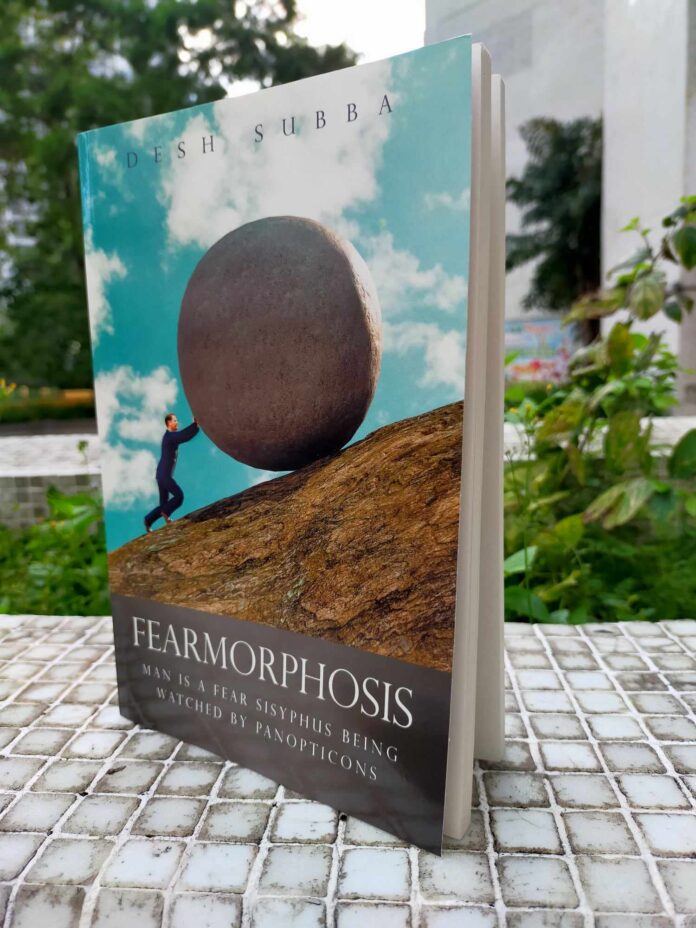Fearism is a theory that can be applied to all aspect of human life and knowledge, here is a critique on New York Times’ bestselling Dan Brown’s novel ‘Origin’. This novel is a subject of battle between religion and science.
Main character Edmond Kirsch struggling to find out origin of human species. He is a computer scientist and futurist. He tells religious teachers that religion is going to an end. When he is supposed to discover the truth, he was mysteriously murdered; the blame goes to Spanish cult, king and religious people. Harvard symbolist Robert Langdon appears 5 times in the novel. Robert Langdon finds out Kirsch’s code in supercomputer which is 45 words like a poetry.
The novel revolves around monarchy, Palmarian Church, European Fascism and Catalon architectures. European Fascism and Catalon architectures. It is suspense thriller. Desh Subba’s Fear philosophy is everywhere.
All characters are fearful. This novel is mysterious science fiction. German philosopher Friedrich Nietzsche comes again and again. Doubt, conspiracy and conflict are the basis of plot. Brown said he got the inspiration to write ‘Origin’ after listening to church music. The writer appears to be an atheist in the novel. Edmond Kirsch is an interesting character because he reads atheist Richard Dawkins and Sam Harris. At the end of the novel Robert Langdon find out origin of species.
This is a victory of science over religion. It brakes the notion of god which is a creator. From fearist perspective this novel is a great example. Fearism is a philosophy discovered by Nepali thinker and writer Desh Subba. It is gaining internationally recognition. He is also philosopher of Trans Philosophism and Fearmorphosis. In my view fearism can be applied to Samuel Becketts play ‘Waiting for Godot’ and Sartre’s ‘No Exit’. Origin deconstructed the role of God in human society and critique creationism. Spines architectures and church are the places in which the novel revolves. Brown also criticizes the Catholic doctrine and myth. We cannot write good literature without fear.
In Desh Subba’s Philosophy, fear is primary, others are secondary. In Dan Brown’s Origin fear is connected to society and culture. After all mystery is solve. Fearism is from the east, and Origin is from west both have commonalities in their voices which can bridge the gap between the two in the kingdom of creation. Brown uses technology and culture to produce new consciousness. In a nutshell Brown is a fictional author and Desh Subba is a Fearological thinker. Origin delves with how human civilization came and where it is going. The book has Guggenheim Bilbao Museum where plots move on.
In many ways Brown is classicist and Desh Subba’s is Trans Philosophismist. It is about creationism and evolutionary biology. Religious people are fearful of scientific truth and scientific people are fearful of religious truth. At the end god cannot survive the power of science. Spain is good place for background because it is catholic and culturally unique. According to Brown different things makes us different people. Being a Fearmorphosist philosopher, Subba discovers fear itself is Sisyphus. He has subtitle in his new book ‘Man is a Fear Sisyphus being watched by Panopticons’.
Fear is all powerful phenomena in human affairs. In the novel Edmond Kirsch has try to find out secret of human origin but he was killed. He tries to find out secret like Subba’s Fear Sisyphus. Robert Langdon also discovers out secrets many times in Sisyphusian manner. He also resembles like all man whatever they try to achieve is an act of Bhageerath (Bhageerath is an Eastern mythical character. He represents a hard worker. It’s good application, we can see in the Fearmorphosis book of Subba).
Albert Camus wrote about the absurd situation. But at the end, the destiny of man is Sisyphus because we never reach the mountain top. Police, secret agents, palace, and politics are making the novel intriguing and interesting.
Subba’s Fearmorphosis applies to all human situations. Camus Sisyphus describes the ill-fated person. Subba’s Trans Philosophism surpasses all existential and post modernist mode of thinking. For him, Fearism the is accurate philosophy to understand the nature of reality.










